News
Die Veranstaltung "Systemtheorie" findet im Wintersemester 22/23 statt.
The course "Systems Theory" takes place in winter semester 22/23.
- Titel: Systemtheorie
- Veranstaltungsart: Vorlesung mit integrierten Übungen
- Datum: September 2022 bis Januar 2023
- Vorlesung: Mittwochs 15:15-16:45 Uhr (Vollzeit), Montags 17:15-18:45 Uhr (Berufsbegleitend)
- Übung: Mittwochs 17:15-18:45 Uhr (Vollzeit), Montags 19:00-20:30 Uhr (Berufsbegleitend)
- Raum: via Zoom
- Kreditpunkte: 5
- SWS: 4
- Sprache: Deutsch
- Prüfung: schriftliche Prüfung (120 min)
- Title: Systems Theory
- Event Type: Lecture with integrated exercises
- Date: September 2022 - January 2023
- Lecture: Wednesdays 3:15-4:45 pm (full-time), Mondays 5:15-6:45 pm (part-time).
- Exercise: Wednesdays 5:15pm-6:45 pm (full-time), Mondays 7:00pm-8:30 pm (part-time).
- Room: via Zoom
- Credits: 5
- SWS: 4
- Language: German
- Exam: Written exam (120 min)
Inhalt
Content
- Motivation
- Zeitkontinuierliche Signale
- Zeitkontinuierliche Systeme
- Lineare, zeitinvariante Systeme
- Faltungsintegral
- Einführung in die Laplace-Transformation
- Rücktransformation und Systeme im Laplace-Bereich
- Übertragungsfunktion und Stabilitätsbewertung
- Frequenzbereich und Fourier-Reihe
- Fourier-Transformation
- Frequenzgang und Filter
- Zeitdiskrete Systeme und Signalabtastung
- Zeitdiskrete Signale und Systeme im Zeitbereich
- z-Transformation und Übertragungsfunktion
- Ausblick
- Klausurvorbereitung
- Motivation
- Continuous signals
- Continuous systems
- Linear time-invariant system
- Convolution
- Introduction to the Laplace Transform
- Inverse transformation and systems in the Laplace domain
- Transfer function and stability
- Frequency domain and Fourier series
- Fourier-Transformation
- Frequency response and filter
- Discrete systems and sampling
- Discrete signals and systems in the time domain
- z-Transformation and transfer function
- Outlook
- Exam preparation
Systeme
Systems
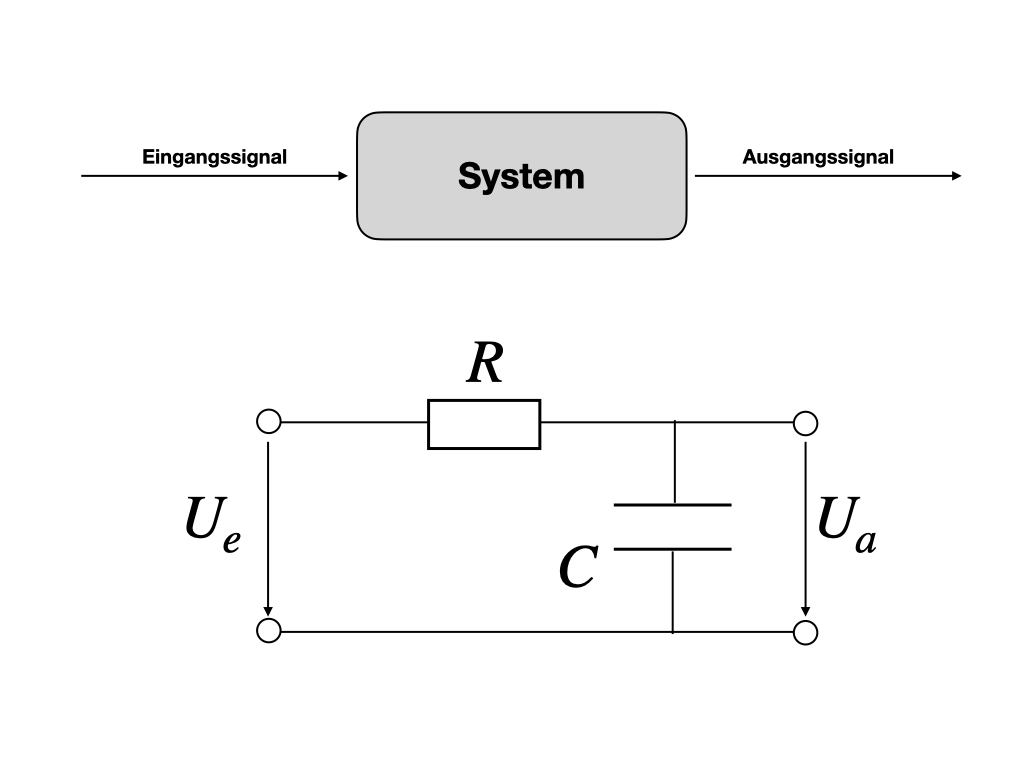
- Systeme in Natur und Technik
- Abstrakte Beschreibung eines Modells (Differntialgleichung)
- Lineare und zeitinvariante Systeme
- Beispiele aus der Elektrotechnik (RC-Netzwerk)
- Systems in nature science and technology
- Abstract description of a model (differential equation)
- Linear and time invariant systems
- Examples from electrical engineering (RC circuit)
Werkzeuge
Tools
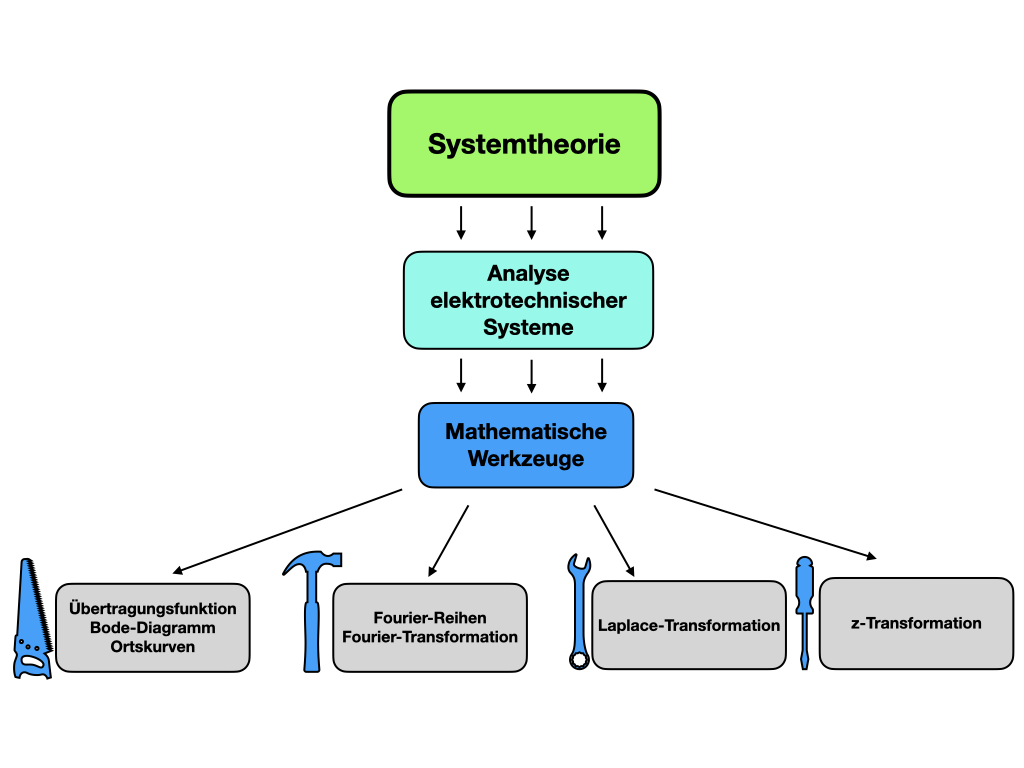
- Werkzeuge für die Analyse von kontinuierlichen und diskreten Systemen
- Einschwingvorgänge (Laplace-Transformation)
- Frequenzanalyse (Fourier- Transformation und Reihen)
- Diskrete Systeme (z-Transformation)
- Tools for analysis of continuous and discrete systems
- Transient response (Laplace transform)
- Frequency analysis (Fourier transform and series)
- Discrete systems (z-transforma)
LTI-Systeme
LTI-Systems

- Einführung von Testsignalen
- Systeme im Zeitbereich
- Einführung LTI Systeme
- Aufstellen und Lösen von DGLs
- Introduction of test signals
- Systems in the time domain
- Introduction LTI systems
- Formulating and solving ODEs
Analyse im Zeitbereich
Time domain analysis
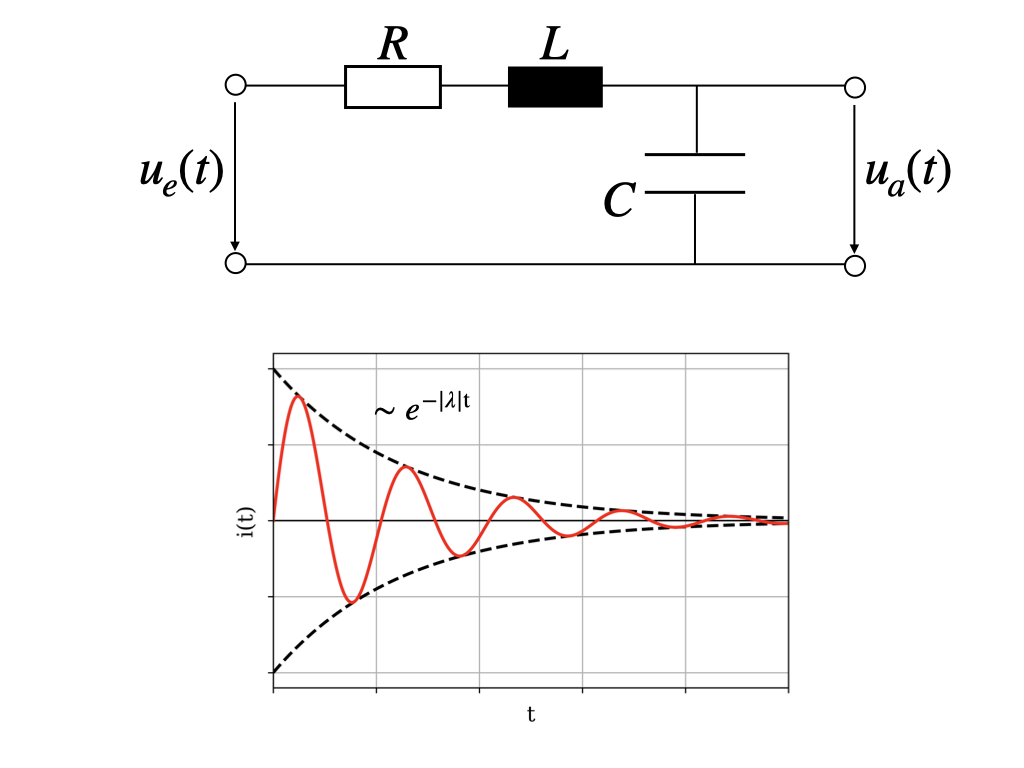
- Systeme 2.Ordnung
- Kausalität
- Stabilität von LTI Systemen
- Sprung- und Impulsantwort
- Systems 2nd order
- Causality
- Stability of LTI systems
- Step and impulse response
Faltung 1
Convolution 1
- Einführung Faltungsintegral
- Grafische Interpretation
- Introduction convolution integral
- Graphic interpretation
Faltung 2
Convolution 2
- Numerische Faltung
- Anwendungsbeispiele
- Numerical convolution
- Examples of applications
Laplace-Transformation
Laplace-Transform
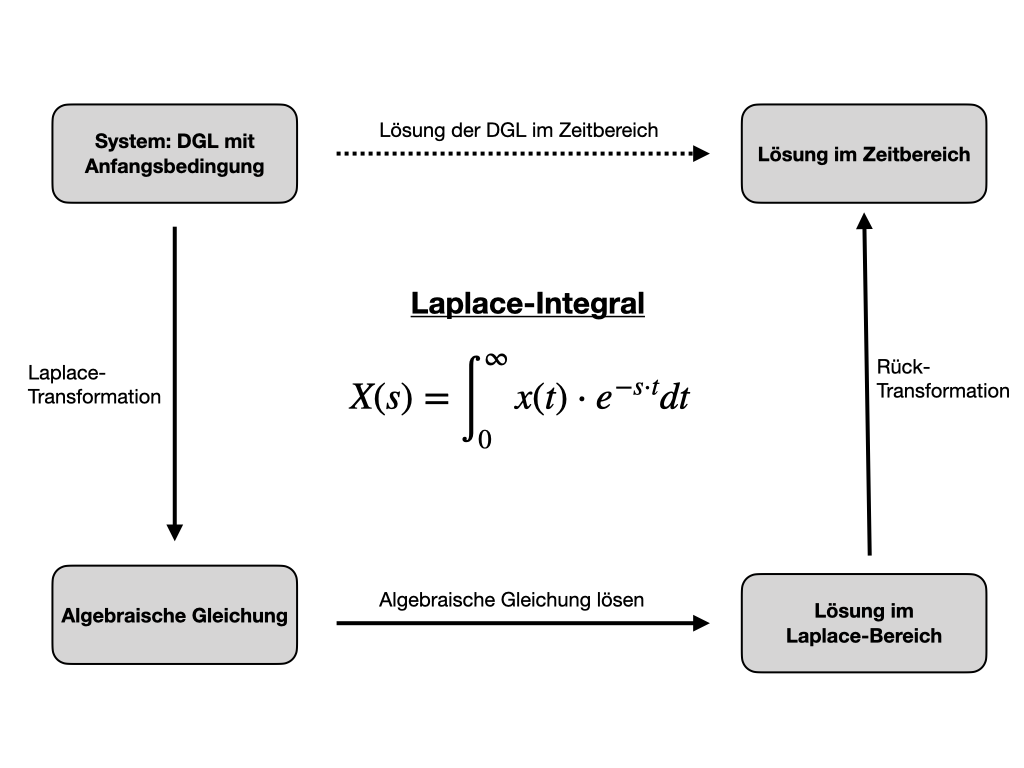
- Einführung Laplace-Transformation
- LTI Systeme im Laplace-Bereich
- Laplace-Rücktransformation
- Korrespondenztabelle und Rechenregeln
- Introduction Laplace transform
- LTI systems in the Laplace domain
- Inverse Laplace transform
- Table of Laplace transforms and operation rules
Stabilitätsanalyse
Stability Analysis
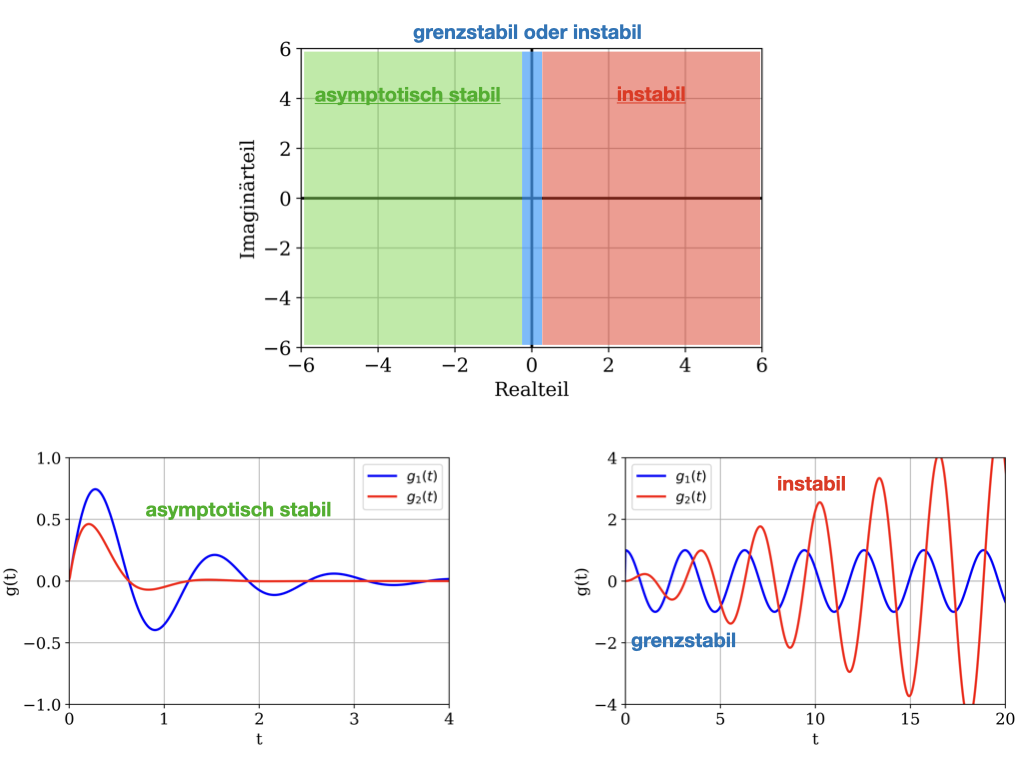
- Übertragungsfunktion
- Pol- Nullstellen Diagramm
- Stabilitätsanalyse
- Hurwitz-Kriterium
- Transfer function
- Pole–zero plot
- Stability analysis
- Hurwitz criterion
Analyse im Frequenzbereich
Frequency Domain Analysis
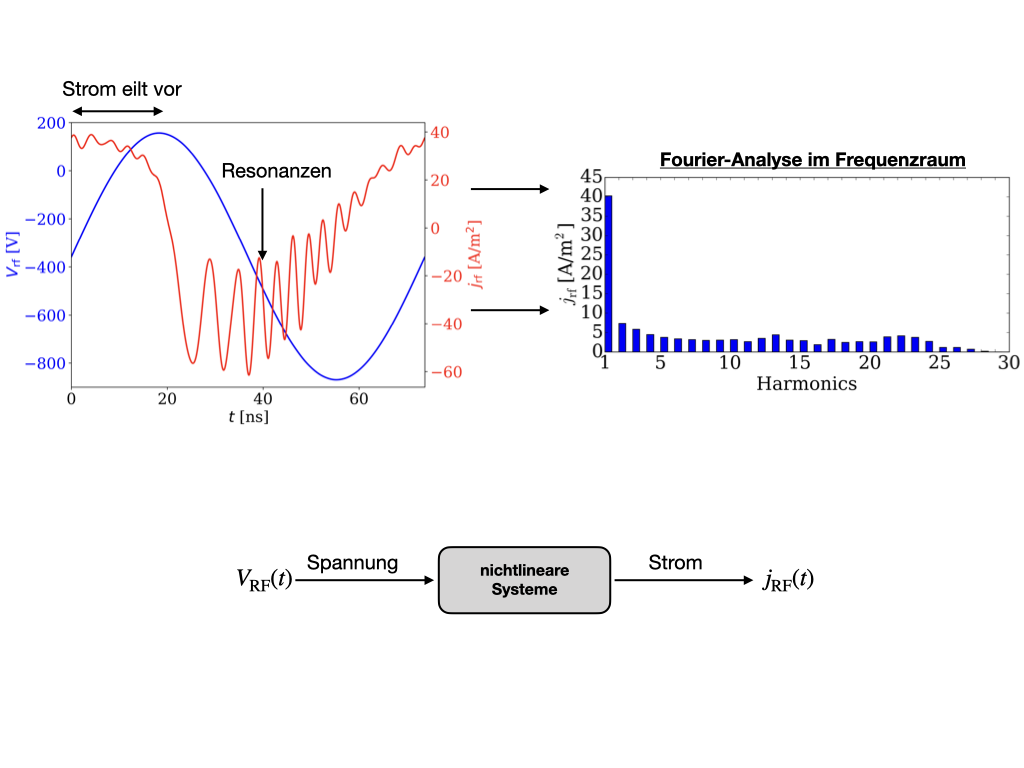
- Einführung in den Frequenzbereich
- Analyse des Signalspektrums
- Fourier-Reihe und Transformation
- Untersuchung des Frequenzgangs
- Introduction to the frequency domain
- Signal spectrum analysis
- Fourier series and transformation
- Examination of the frequency response
Fourier Transformation
Fourier Transform
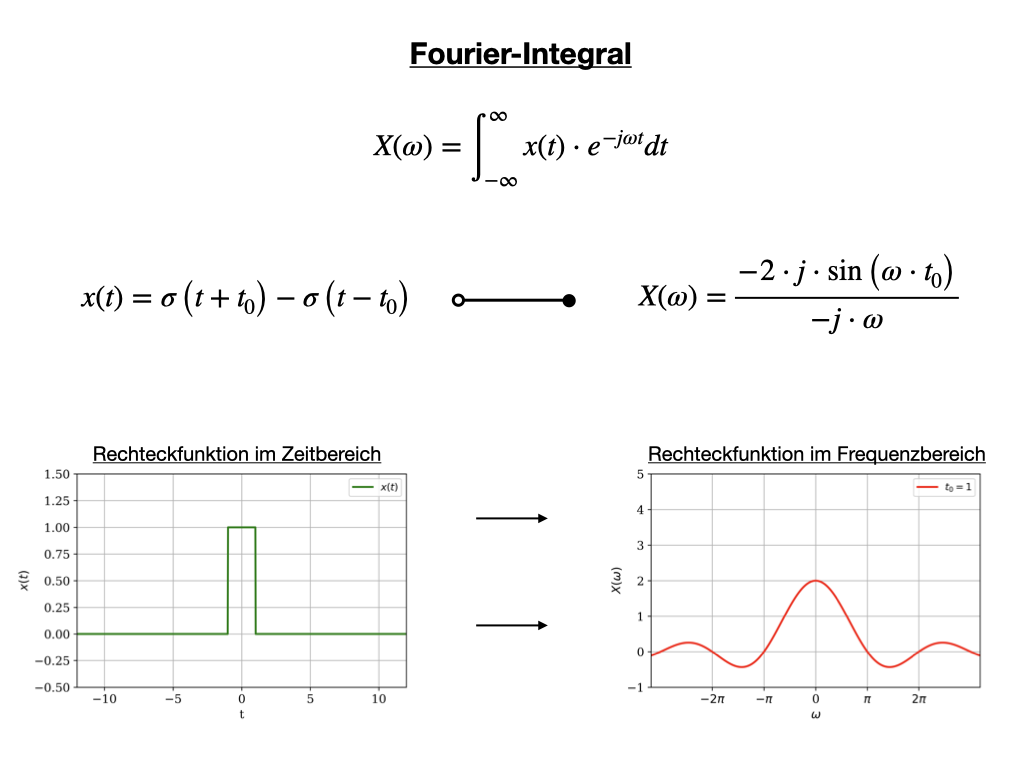
- Fourier-Integral
- Inverse Fourier-Transformation
- Korrespondenztabelle und Rechenregeln
- Fourier vs. Laplace
- Fourier integral
- Inverse Fourier Transform
- Table of Laplace transforms and operation rules
- Fourier vs. Laplace
Fourier-Reihe
Fourier-Series
- Näherung durch Fourier-Reihen
- Interpretation von Harmonischen
- Amplituden-Phasen Notation
- Komplexe Fourier-Reihen
- Approximation by Fourier series
- Interpretation of harmonics
- Amplitude-phase form
- Complex-valued functions
Frequenzgang
Frequency Response
- Analyse des Frequenzgangs
- Bode-Diagramm
- Nyquist-Diagramm
- MATLAB/Python Simulation
- Frequency response analysis
- Bode plot
- Nyquist plot
- MATLAB/Python Simulation